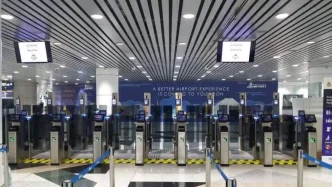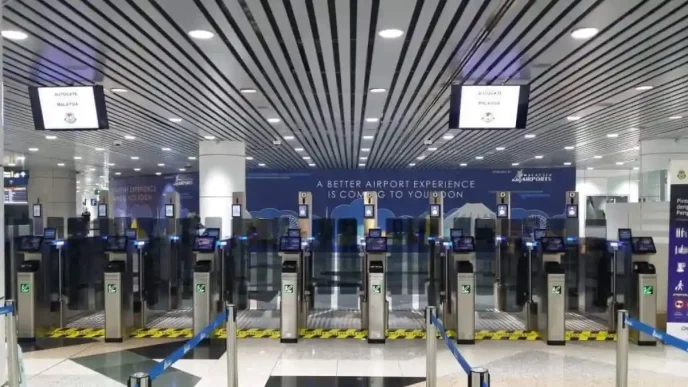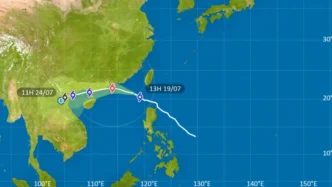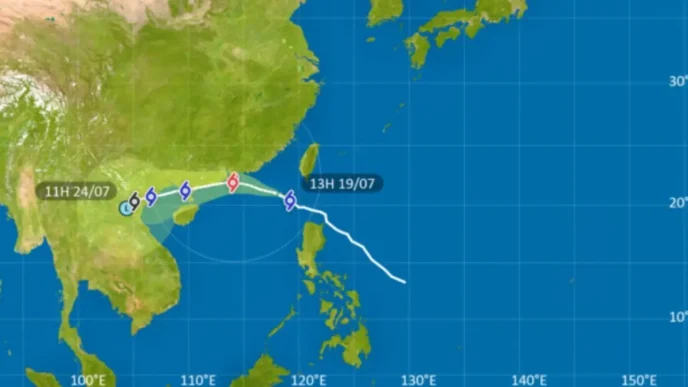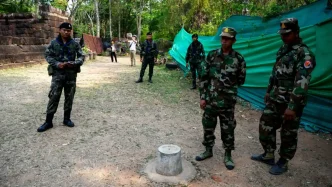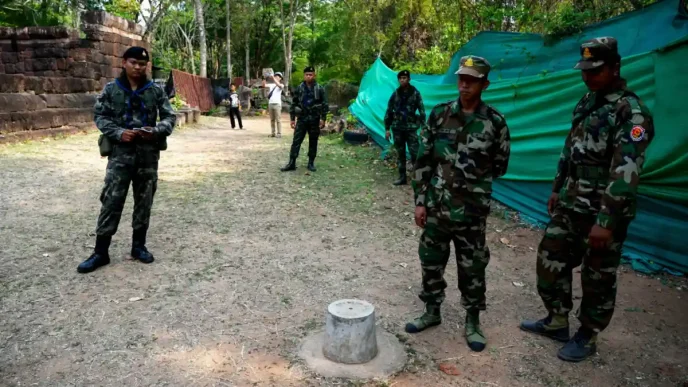In a harrowing tale of vulnerability and exploitation, an 18-year-old Malaysian, Gan Jiea Jie, found himself ensnared by a human trafficking syndicate operating along the volatile Thai-Myanmar border. What began as a solo journey to Thailand turned into a nightmare of captivity, forced involvement in scams targeting individuals out of Myanmar, and a desperate bid for freedom. His story, relayed through his close friend Joyce Hwang Qi Hui, sheds light on the pervasive dangers of job scam syndicates in the region and the plight of young, at-risk individuals lured into their traps.
A Trusted Friend’s Alarm
Joyce Hwang, who describes herself as Gan’s “big sister,” has been a constant source of support for the teenager, whose troubled family background has often left him vulnerable. Speaking from Johor Baru, Hwang recounted how Gan frequently turned to her for guidance during difficult times. Yet, nothing prepared her for the distressing call she received on 18 February 2025, when Gan revealed he had been kidnapped by a trafficking syndicate after travelling alone to Thailand.
“I didn’t believe him at first,” Hwang admitted. “But then he sent me pictures of armed men guarding him at a house, and he shared his location—it was somewhere along the Thai-Myanmar border.” The images, some of which Hwang later showed to local media, painted a chilling picture of Gan’s predicament. He explained to her that he was being coerced into scamming operations targeting people in Myanmar, a common tactic used by syndicates in the region to exploit vulnerable workers.
Hwang urged Gan to seek help from the Malaysian Embassy in Bangkok, despite the logistical and safety challenges he faced. According to her, Gan and his manager—a figure whose role remains unclear—travelled roughly 500 kilometres over two days from the border area to the Thai capital. However, the journey was fraught with danger. Hwang revealed that syndicates often use social media to post bounties on escapees, complete with photographs and passport details, making every step a risk. “They have spies everywhere,” she said, her voice heavy with concern.
A Desperate Escape and Obstacles to Safety
Gan’s attempt to reach safety was thwarted by financial constraints and mistrust. After managing to contact a driver, he was dropped off at a nearby police station instead of the Malaysian Embassy, as he lacked the funds for the full journey. Hwang offered to transfer money to the driver’s account, but the offer was refused, leaving Gan stranded and reliant on local authorities for protection.
Since then, Hwang has been in regular contact with an embassy official who visited Gan at the police station to verify his status. “The official has been very helpful,” she noted, though she remains worried about Gan’s estranged relationship with his family. With no immediate support from his parents, Hwang is exploring ways to raise funds to bring him back to Malaysia.
Official Response and Broader Context
A Wisma Putra official, speaking on condition of anonymity, confirmed that Gan is currently being screened under Thailand’s National Referral Mechanism (NRM), a process designed to identify victims of trafficking. “He is also assisting the police with their investigation,” the official said. “They’ve taken him back to the hotel where he stayed with his manager, and he has provided some leads in the case.” If cleared of any wrongdoing, the embassy will facilitate consular services for his return, though Gan or his representatives will need to cover flight costs and any potential fines imposed by Thai courts.
Gan’s case is far from isolated. The official revealed that at least 15 other Malaysians have recently been rescued from similar job scam syndicates in the region and are awaiting repatriation approval from Thai authorities. This alarming figure underscores the scale of the problem, as criminal networks exploit economic desperation and lax border controls to trap individuals in cycles of coercion and abuse.
The Lure of False Promises
The Thai-Myanmar border has long been a hotspot for illicit activities, including human trafficking and job scams. Syndicates often target young, underprivileged individuals from neighbouring countries like Malaysia, promising lucrative employment opportunities abroad. Once lured, victims are frequently subjected to forced labour, debt bondage, or, as in Gan’s case, coerced into fraudulent schemes targeting others. The use of armed guards and threats of violence ensures compliance, while escape is made near-impossible by the syndicates’ extensive networks of informants.
For someone like Gan, described by Hwang as coming from a “broken family,” the promise of a better life can be particularly enticing. Yet, his story highlights the devastating consequences of such vulnerability. Estranged from his parents and lacking a stable support system, Gan’s reliance on friends like Hwang for help speaks to the broader social challenges that enable trafficking networks to thrive.
Regional Challenges and International Cooperation
The plight of Malaysians trapped in these syndicates has prompted growing concern among authorities and advocacy groups. Thailand, as a transit and destination country for trafficking victims, faces immense pressure to strengthen its border security and crack down on criminal networks. The National Referral Mechanism, while a step forward, often struggles with bureaucratic delays and limited resources, leaving victims like Gan in limbo for extended periods.
Malaysia, too, has a role to play. The government has repeatedly issued warnings about job scams abroad, urging citizens to verify employment offers through official channels. However, for many young people facing economic hardship or personal struggles, such warnings may come too late. Gan’s case illustrates the urgent need for targeted outreach and support systems to prevent at-risk individuals from falling prey to these schemes in the first place.
International cooperation is also critical. The involvement of Myanmar nationals as targets of the scams Gan was forced to perpetrate points to the cross-border nature of these crimes. Collaborative efforts between Thailand, Malaysia, Myanmar, and regional bodies like ASEAN could help dismantle these syndicates, though political instability in Myanmar and differing national priorities often hinder progress.
A Long Road Home
For now, Gan remains in Thailand, his fate hinging on the outcome of the NRM screening and police investigation. Hwang continues to advocate for his safe return, determined to raise the necessary funds despite the personal toll. “I just want him to come back safely,” she said. “I keep hoping he’ll change, that this experience will be a turning point for him.”
Gan’s ordeal is a stark reminder of the human cost of trafficking and the complex web of socioeconomic factors that sustain it. As authorities work to repatriate him and others, the broader fight against job scam syndicates in the region demands sustained attention and resources. Until then, stories like Gan’s will continue to emerge from the shadows of the Thai-Myanmar border, a region where desperation and exploitation too often intersect.



